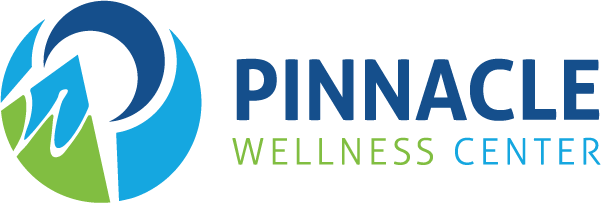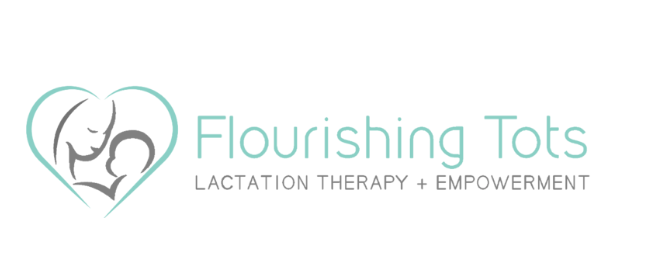Hello! I’m Lisa Gonzales from Flourishing Tots.
I am a mom of 3 and a former labor & delivery/postpartum nurse turned lactation consultant. After 9 years in L/D and 4 years as a hospital lactation nurse, I started a home-visit private practice. My ultimate goal as a lactation consultant is to help you meet your feeding goals, whether breast/chest, bottle (yep, lactation consultants help exclusively bottle fed babies, too!) or combination feeding.
One of my favorite things about my private practice is I can take as much time as needed to nurture families. Home visits are often twice as long as hospital or pediatric office lactation appointments. This extra time allows families to absorb the information they receive and ask questions as they arise without feeling rushed.

If you or your partner are thinking about breast/chestfeeding your baby, there are a few things you can do to get started. If your baby has already arrived, no worries! You can still implement several of these steps to help you meet your feeding goals.
1. Take a basic breastfeeding class
Basic breastfeeding classes are a great way to familiarize yourself with how your body works. You learn a bit about the physiology of lactation as well as the how-tos of latching. You will also learn to recognize when feeding is not going well and when to reach out for help.
2. Define your success before baby arrives
Successful feeding means something different for everyone. There is a lot (I mean, like, a lot) of societal pressure to do X, Y, and Z with your baby. Defining your feeding goals and the steps needed to reach your goal will help you feel confident on your feeding journey.
It is also important to think about what your emotions may be and how to manage them if feeding takes an alternative route to the one you had planned. Things don’t always go as planned and it’s crucial to your mental wellness to have a plan in place if you head towards Plan B (or C, or D).
3. Schedule a prenatal lactation consult
Meeting with a lactation consultant prior to your baby’s arrival will decrease any feeding related anxiety. All the questions that came up during your feeding class can be answered specifically for your needs. This is especially important right now as many classes are pre-recorded and not interactive. After I see clients prenatally, I offer follow up via text until they get home after their baby is born…which can be a life (and/or nipple) saver. We can troubleshoot as much as possible and schedule a postpartum visit appropriately.
Another benefit to a prenatal consult is that your brain retains information better! Baby brain is real! You will remember things much better if you learn them before your baby arrives.

One thing I love showing families during a prenatal visit is TummyTime! Method. Tummy time is a great way for the non-lactating parent to bond and play with their baby. Partners can’t always help with feeding but they can always help with tummy time!
4. Plan for at least 3 lactation home visits after your baby is born
I truly believe that planning for at least 3 lactation visits (more if troubles arise) will set you up for successful feeding. Just as you see the pediatrician regularly for well child checks, you should schedule regular lactation checks to ensure feeding is going well. Scheduled lactation check-ups can catch problems, such as decreasing supply, early on when it’s easier to correct. It’s much easier to prevent a low supply than increase it once it’s problematic.
When should you have your lactation check-ups?
1-2 weeks
- An early consult really helps optimize feeding from the start and prevent early difficulties that can negatively affect milk supply or Baby’s weight gain down the road.
4-6 weeks
- A 4 wk old baby is quite different from a 1 week old baby. As they emerge from their neonatal stage, feeding is often very different from when they were a week old.
- This is also when many families want to talk about preparing for going back to work and incorporating bottles and/or pumping into their routine.
3 months
- Feeding is often in a nice groove by this point. It’s when milk supply starts to regulate and your baby’s development is really accelerating.
- 3 months is a really good time to talk about things that are coming up for your baby and how to navigate challenging situations such as changes to sleep habits and when to bring your baby to the table (aka, starting solids).
If you have any questions about how to get feeding off to a good start or you are unsure if you need a lactation consult, please email or text me any time!

